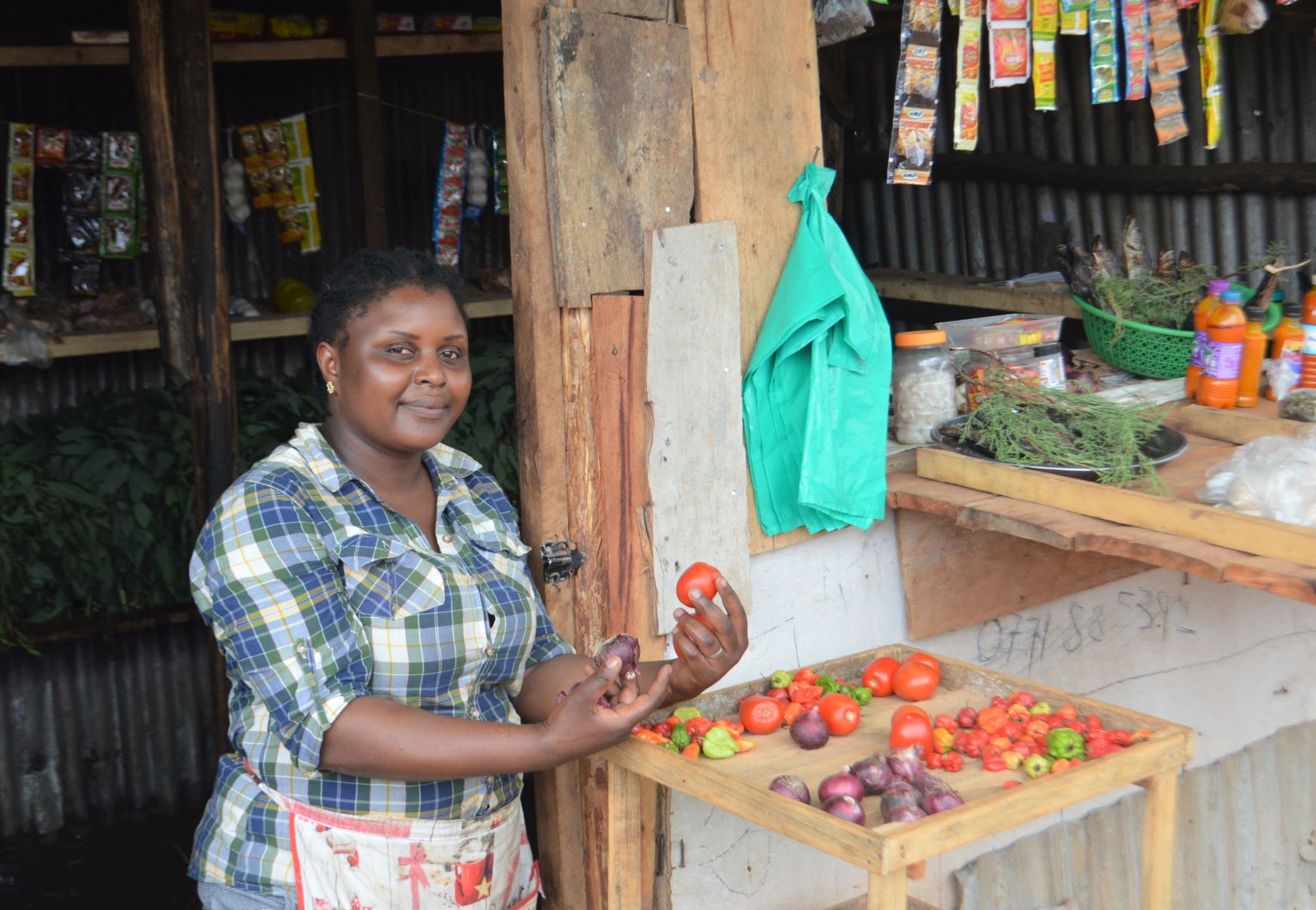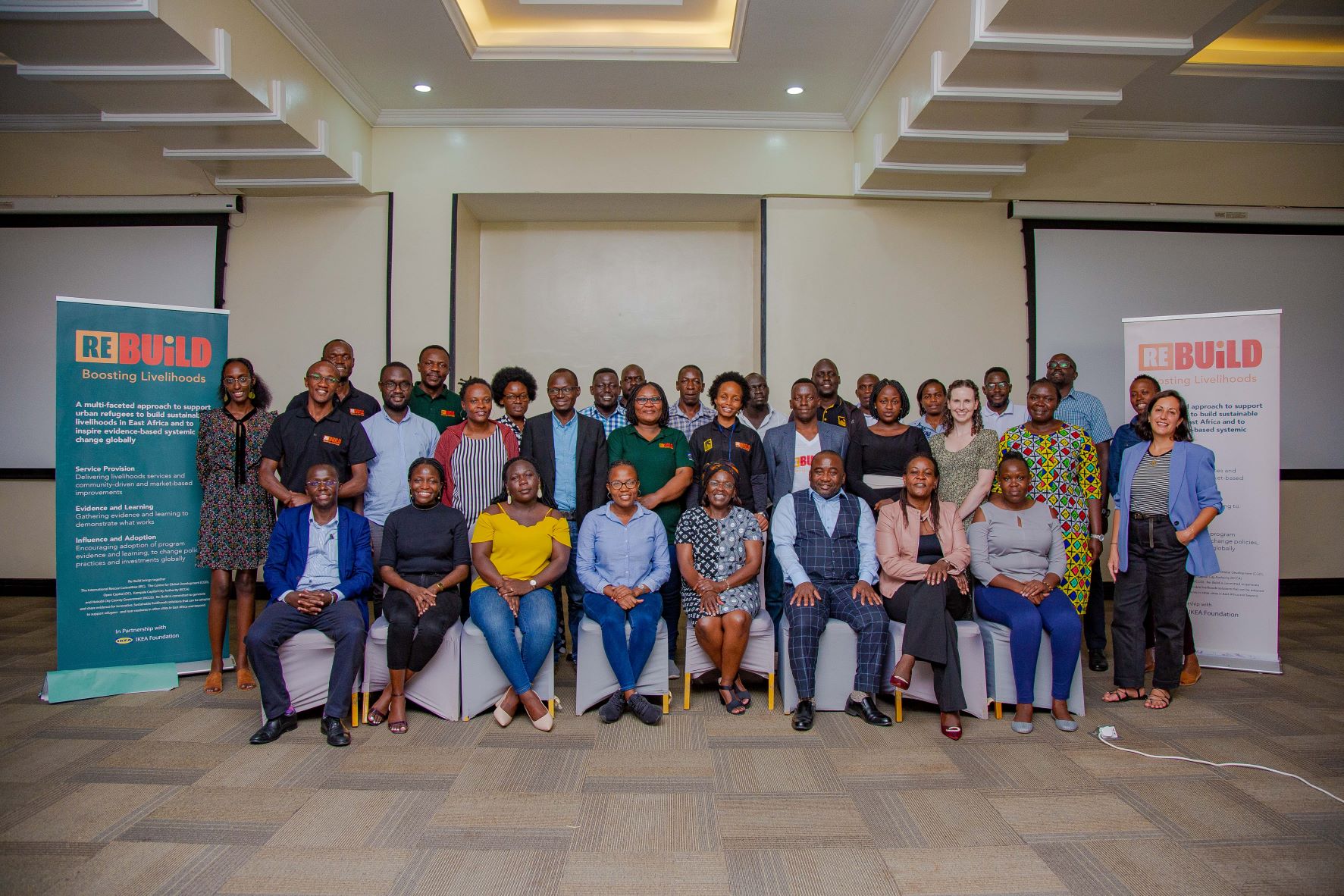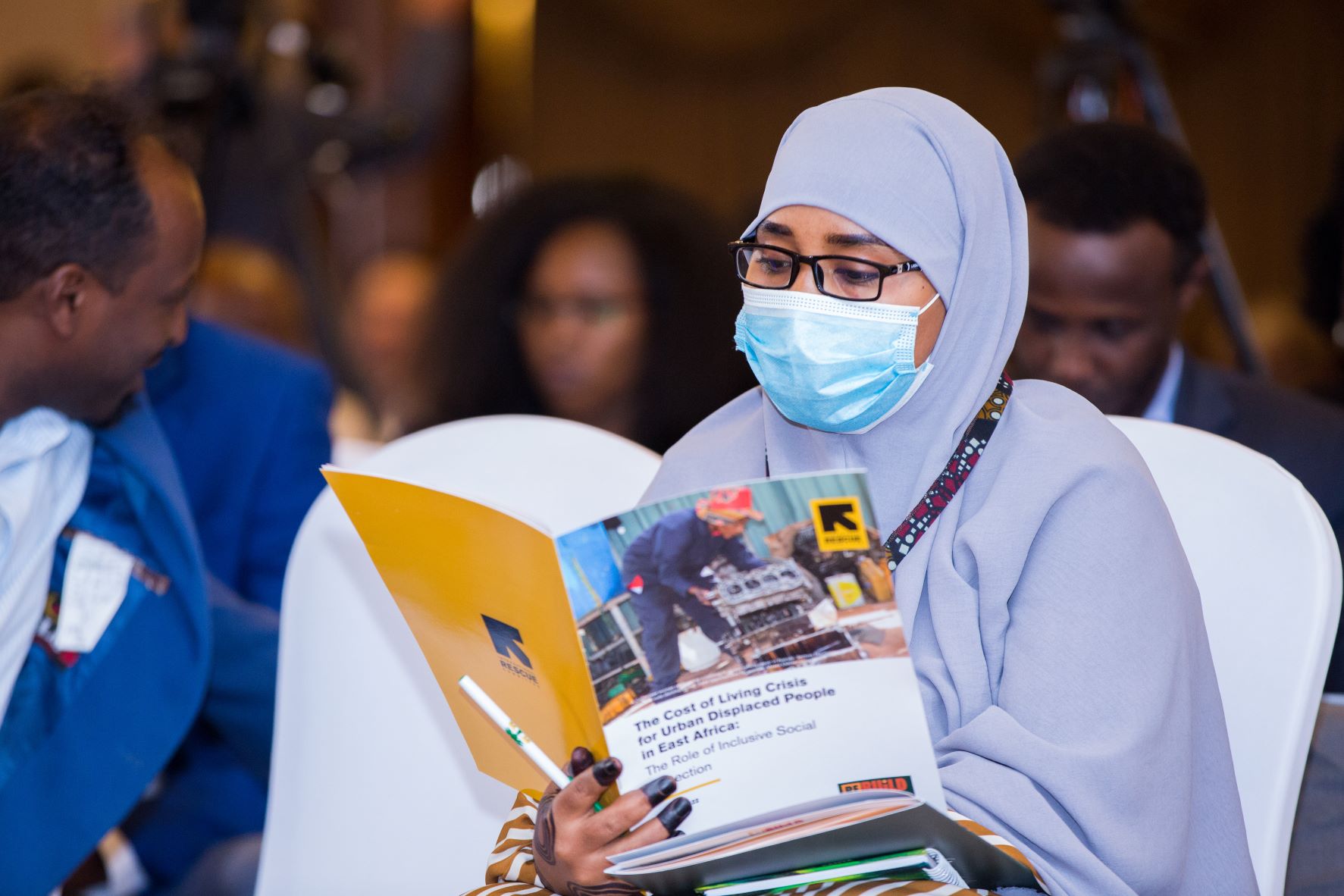A business grant gives new lease of life for Congolese refugee in Kampala
A business grant gives new lease of life for Congolese refugee in Kampala
A business grant from the Re:Build program has enabled Kapinga Tambwe to set up a small grocery shop where she sells vegetables and fish from which earns money to take care of her two daughters and husband.

In the last two months, Kapinga Tambwe, a 30-year-old Congolese refugee says her life has changed for the better. Before that, for three years, Tambwe’s job was hawking dry fish on the streets of Uganda’s capital, Kampala.
‘‘I would go back home in the evening with my body in pain because of spending the whole day walking. Sometimes I would have run-ins with law enforcement because they don’t want hawkers on the streets,’’ said Tambwe, a mother of two girls.
But things began to change when she was among 1,660 refugees and Uganda nationals so far selected to receive business grants of two million Uganda shillings (about USD 525) from the Refugees in East Africa: Boosting Urban Innovations for Livelihoods Development (Re:Build) program. The grant is part of the ongoing Randomized Control Trial (RCT) in which 600 mentors and 2,000 mentees are participating in Kampala.
‘‘The business grants are meant to support clients to start their own business or improve on existing ones to provide lessons on what works or doesn’t work for micro-enterprises targeting urban refugees and hosts,’’ said David Musiime, the Re:Build Research Coordinator.
Tambwe chose to improve her existing business by stopping street-hawking, securing a business premise, and increasing her range of products beyond fish.
A new address
A fortnight before she got the grant, Tambwe was already scouting the neighbourhood for an affordable kiosk on a busy location.
‘‘The money I received from Re:Build has made my business bigger than it was before ’’ she said from her kiosk located along a major street in the Kampala neighborhood of Nsambya, Kirombe.
Her run-ins with city law enforcement officers have also stopped since she no longer hawks on the streets. Infact, Tembwa says she visited the local city office to get a business license.
‘‘I provided them with my address, and they told me to come back and continue with my work—that they will come and visit me at my work’’.
For about an hour spent in her shop, I counted five clients who came in to buy onions, tomatoes, fish, palm oil and a Congolese delicacy called Sombe.
‘‘I still have to work hard to take care of my daughters and sick husband, but for sure I feel much better than when I was a street hawker’’.
Tambwe’s husband was involved in a life-threatening traffic accident that left him requiring crutches to be able to walk and in need of a major operation on the knees.
Big grocery plans
From her small business, Tambwe dreams of one day growing into a big grocery store.
‘‘My clients are majorly Congolese, Ugandans and South Sudanese. I dream of expanding the business into a big grocery store with Congolese, Ugandan and Sudanese foods’’.
She opens her business at 6 am each morning so that she can timely provide goods to buyers from restaurants who would be shopping for what to cook in the day.
‘‘I get a minimum of 20 customers a day; I am assured of a meal for the family’’.
With the cost-of-living crisis that has left refugees in urban centres in East Africa particularly vulnerable, the ability to engage in a productive livelihood activity in the city and an assurance of a meal is a path to self-reliance, a core mission of the Re:Build program.
Re:Build is conducting Randomized Control Trials (RCTs) in Kampala and Nairobi to establish the effectiveness and cost-effectiveness of specific interventions and delivery approaches to address the barriers urban refugees experience in their pursuit of economic self-reliance.

